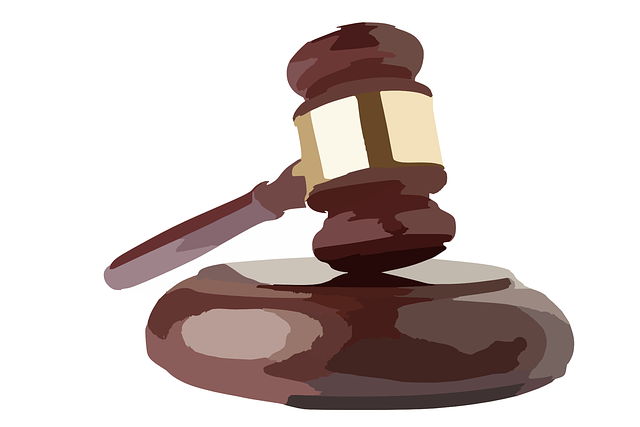Contempt of court occurs when individuals willfully disregard court orders or authority, hindering justice (e.g., non-compliance with custody, support agreements). It includes actions like missing court appearances, false testimony, and violating restraining orders, leading to fines, imprisonment, or both. Legal professionals guide clients on consequences, collaborate with judges, and facilitate communication to prevent contempt. Strategic solutions include open dialogue, adjusted court orders, and monitoring systems. Judges exercise discretion in penalties, ranging from fines to imprisonment, based on the severity and context of each incident. Effective management involves strategic planning and expert guidance, as shown by successful case studies.
“Navigating Contempt of Court: Expert Insights and Strategic Solutions” explores the intricate world of legal sanctions for non-compliance with a court order. This comprehensive guide delves into the definition, causes, and legal implications of contempt, providing valuable insights to individuals and professionals alike. From understanding common pitfalls to examining successful case studies, we offer strategic advice on prevention, mitigation, and effective responses to contempt challenges. Discover the role of legal experts in guiding clients through these complex matters and explore penalty options within the framework of judicial discretion.”
- Understanding Contempt of Court: Definition and Legal Implications
- Common Causes and Examples of Contempt of Court
- The Role of Legal Professionals in Preventing Contempt
- Strategic Solutions for Addressing Contempt Challenges
- Judicial Discretion and Penalty Options for Contempt
- Case Studies: Successful Navigation of Contempt Issues
Understanding Contempt of Court: Definition and Legal Implications

Contempt of court is a legal concept that refers to the willful failure or refusal to comply with a court order or to respect the authority of a judge or tribunal. It’s a serious charge that carries significant legal implications, including potential fines and imprisonment. When an individual or entity is held in contempt, they are essentially being punished for obstructing justice or undermining the court’s ability to enforce its orders.
In the context of family law, for instance, contempt can arise when a parent fails to fulfill obligations set forth in a custody or support order. This might include refusing to share child support payments, failing to return children as agreed, or interfering with an ex-partner’s access rights. Understanding these implications is crucial for both parties involved in legal disputes to ensure compliance and avoid such charges.
Common Causes and Examples of Contempt of Court

Contempt of court is a serious legal issue that occurs when an individual or party fails to comply with a court order or engages in conduct that shows disrespect for the judicial process. Common causes often stem from deliberate actions or willful neglect, such as failure to appear in court, non-compliance with subpoenas, or refusing to follow established rules and procedures. For instance, not turning up for a scheduled hearing without valid reason can be considered contempt, as it obstructs the smooth functioning of the court. Similarly, failing to produce evidence or documents as ordered by the judge is another example, hindering the case’s progress.
Other scenarios include making false statements under oath, disrupting court proceedings through disruptive behavior or verbal abuse, and violating restraining orders. These actions undermine the authority of the court and can have severe consequences, including fines, imprisonment, or both. Understanding these causes is crucial for individuals to avoid potential contempt challenges and ensure their respect for the legal process.
The Role of Legal Professionals in Preventing Contempt

Legal professionals play a pivotal role in preventing and addressing contempt of court. They are responsible for ensuring that all parties involved in a legal dispute adhere to court orders and rules, maintaining the integrity of the judicial process. Through their expertise, they can guide clients on the consequences of violating court mandates, encouraging compliance from the outset.
Attorneys and judges work collaboratively to interpret and enforce court orders, using legal arguments and procedural mechanisms when necessary. By staying informed about relevant laws and precedents, these professionals can offer sound advice on how to avoid contempt situations. They also facilitate open communication between courts and litigants, addressing any misunderstandings or misinterpretations that could lead to non-compliance.
Strategic Solutions for Addressing Contempt Challenges

When faced with a contempt of court challenge, strategic solutions can help defuse tensions and resolve issues effectively. One key approach is open communication and negotiation. Encouraging all parties involved to express their concerns openly and engage in dialogue can often lead to mutually agreeable resolutions. This may involve adjusting court orders, clarifying expectations, or establishing new guidelines to ensure compliance.
Additionally, building a robust system of support and monitoring can be instrumental in preventing future contempt issues. This could include regular check-ins with legal professionals, the assignment of trusted intermediaries, or the implementation of automated reporting systems. Such measures foster accountability while maintaining fairness, ensuring that all parties understand their responsibilities and consequences.
Judicial Discretion and Penalty Options for Contempt

Judicial discretion plays a significant role in handling contempt of court cases. Judges have the authority to decide on appropriate penalties based on the specific circumstances and gravity of the contemner’s actions. The range of penalty options is wide, allowing for tailored justice. These can include fines, imprisonment, or community service, each serving as a deterrent and a means to uphold the authority of the court.
The choice of penalty often depends on factors such as the willfulness of the contempt, its impact on judicial proceedings, and any previous instances of non-compliance. In severe cases, imprisonment may be imposed as a strong message to deter future contemns. Conversely, for less serious or first-time offenses, fines or community service can serve as effective alternatives while still maintaining the integrity of the legal process.
Case Studies: Successful Navigation of Contempt Issues

In the realm of legal proceedings, contempt of court is a complex issue that can often be successfully navigated through strategic planning and expert guidance. Case studies illustrate powerful examples of this. For instance, consider a recent case where a party faced charges for contempt due to missed deadlines. Through meticulous document management and advanced communication tools, they demonstrated good faith efforts to comply, ultimately resulting in the judge’s appreciation and dismissal of the contempt allegations.
Another compelling study highlights the importance of proactive engagement. In a dispute over non-payment of alimony, a client proactively reached out to the court for regular updates on their case. This open dialogue prevented potential contempt issues and led to a mutually agreeable resolution. These scenarios underscore that with the right approach and tools, contempt challenges can be transformed into opportunities for positive outcomes.
